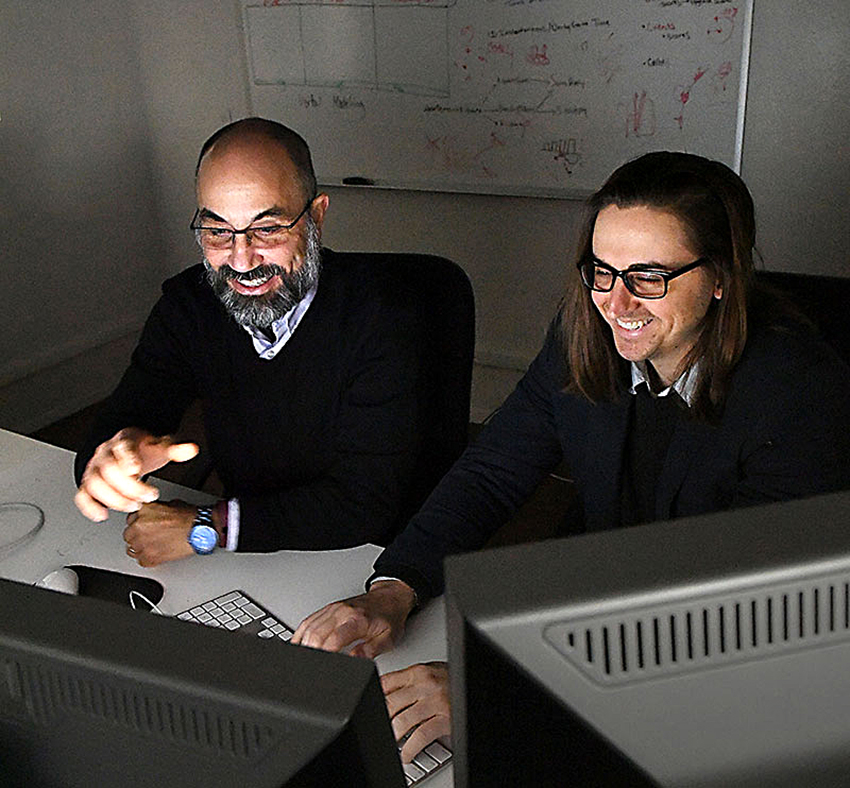UT researchers are spending their days studying video games to solve issues in healthcare, education and the environment.
UT’s Simulations and Game Applications Lab, or SAGA, is focused on using video games to address a range of social issues, such as helping people manage chronic health conditions, improving education after high school for the deaf community and helping health workers provide better care to a larger number of patients.
Paul Toprac and Matthew O’Hair are both principal investigators at SAGA.
“The physical and mental health of individuals and, collectively, our world, is paramount,” Toprac said. “We want to be part of the solution to the challenge of health care.”
Toprac and O’Hair said they design and create video games that are both fun and can be used by the lab to collect data. They try to make games with a high level of engagement from users to make sure the players believe they are playing a video game instead of participating in a study.
Toprac said the process of making games has three main components. It starts with making sure that they can maintain a “fun factor.” Next, they focus on the game’s ease of use. Lastly, they integrate the important research questions they are trying to ask.
“Games are proven to be motivational,” Tropac said. “We hope to harness this motivation to engage players to change behavior and thinking in positive ways.”
SAGA collects a variety of data from the users of the video games. Toprac said gameplay data is collected to better learn about where players are getting stuck or losing their motivation. He said demographic data is also collected.
“(In designing a video game,) too much focus on content and not enough focus on gameplay typically results in a boring game,” Toprac said. “A game needs to communicate what the goal of the game is or the player will get lost or become disinterested.”
SAGA designs games that gather data for a variety of issues, such as health care and global sustainability. The lab is currently developing a video game called Environ. The player’s goal in Environ is to improve Earth’s environment while also focusing on the economy. Because there is only a limited amount of resources available, the player has to decide the best way to become more sustainable. Toprac said Environ is an educational game that puts students in the role of decision maker.
SAGA is also looking into the idea of using video games to gather crowd-sourced data, or data coming from a large amount of people. Toprac said that video games can specifically be used to gather data about things that computers find difficult to understand.
He said one example is the game “Sea Hero Quest.” In this game, players directly help gather data by moving around spaces and obstacles and answering questions about themselves and others. All this information is then used to facilitate research for Alzheimer’s disease.
Toprac and O’Hair said they believe there is no limit to the future of their research. They are looking forward to working with Dell Medical School and using new technologies such as virtual reality and augmented reality to supplement their video games. Toprac said SAGA believes these new technologies can have a major impact on medical education and practice. He said SAGA also hopes to develop software tools that the public can easily use.
“In my mind, the future is wide open for the possibilities of using games to further research into health, education and, in general, the betterment of society,” Toprac said.















